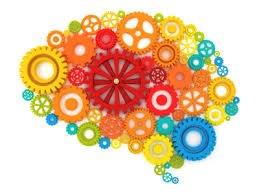Help me welcome guest blogger Jack Milgram. Jack is a blogger at Top-notch study tips for A+ students. Today he shares his ideas about creativity.
Creativity Innate or Learned
Creativity is a popular characteristic that you can spot on almost every resume. But what is it exactly? And are we born with this trait, or do we develop it?
From a young age, we’re assured that creativity is a talent you either have or don’t. What does creativity mean? It’s easy—if children can draw or play music, they’re creative; if not, well, they’re good at something else.
Kind of rough, isn’t it?
Now, as adults, we can see that almost everything depends on the effort and time we spend to learn a skill. And the same is true about creativity!
Creative thinking is a combination of effort, genetics, and social environment. But the point is this—if you haven’t found success with the last two, you can always still start developing creativity.
Firstly, let’s talk about the creativity definition. Creativity is the ability to develop new ideas and solutions. But is it true that we are ever able to come up with fresh ideas?
Many specialists visualize creativity not as some chaotic, magical ritual but rather as a number of links between actual experiences.
What does that mean exactly?
It means that to develop something new, all you need to do is combine two or more existing ideas. This leads us to an important fact: the more experience you have, the more creative your ideas will be.
Just think about it—creative thinking isn’t applied to artistic activities only. It’s a significant skill for many professions. Every profession that is friendly to optimization demands that its employees be creative.
Imagine that you’re completing a PR task. This is definitely a creative profession—developing strategies, communicating with the media, organizing events, and so on. To develop a good advertisement, it isn’t enough to be a talented person.
So what do you think? Who has a better chance of success: an experienced specialist or just a creative person? For sure, it will be the specialist. And one of the reasons for this is simple—specialists know so many examples of beneficial strategies that they can combine ideas almost automatically.
So, if we can train creativity, how are we supposed to do it? There aren’t any muscles for creativeness.
Don’t worry—here are some easy tips you can use:
- Don’t set limitations.
People can be creative only when there is enough freedom for it. Brainstorm without judging yourself or setting boundaries.
- Start a notebook.
Every idea should be written down. This will help you remember them later and find ways for improvement.
- Do what you love.
Research has shown that creativity increases with dopamine, the organic chemical responsible for the rewards center of the human brain. That means that the more motivation you have, the more ideas you can develop.
- Fix your bad mood.
Creativity in business is a great thing. But you can only achieve it by being in a good mood. Don’t let yourself be pessimistic, and find enjoyment in the simple things.
- Look around.
The outside world is full of interesting examples that you can use in your work. Meet friends, go for a walk, find some new hobbies, and so on. The most creative things you can find are already around you.
<><><><><><><><><><><><><>
 Visit Jack’s blog: custom-writing.org/blog
Visit Jack’s blog: custom-writing.org/blog
Connect with Jack
Twitter: @Jack__Milgram
Facebook: Jack.Milgram

[…] Welcome returning guest blogger Jack Milgram. Jack blogs at Top-notch study tips for A+ students. Today he shares some ideas with us about how to boost your creativity. You can read his July blog for View from the Front Porch here. […]
Very helpful. Thank you.